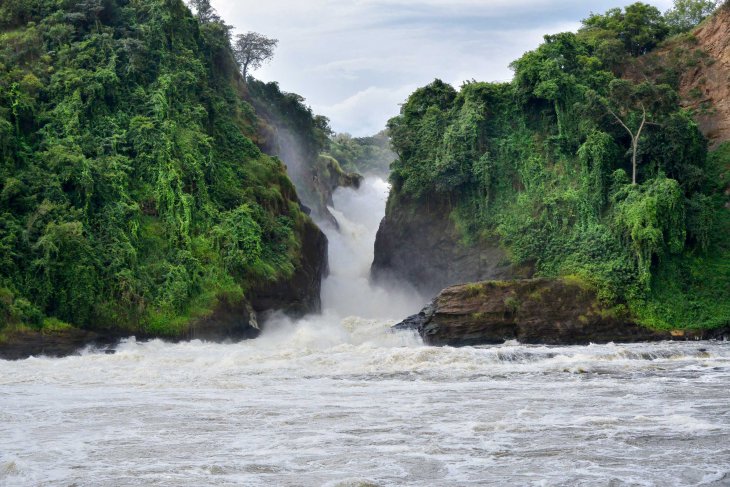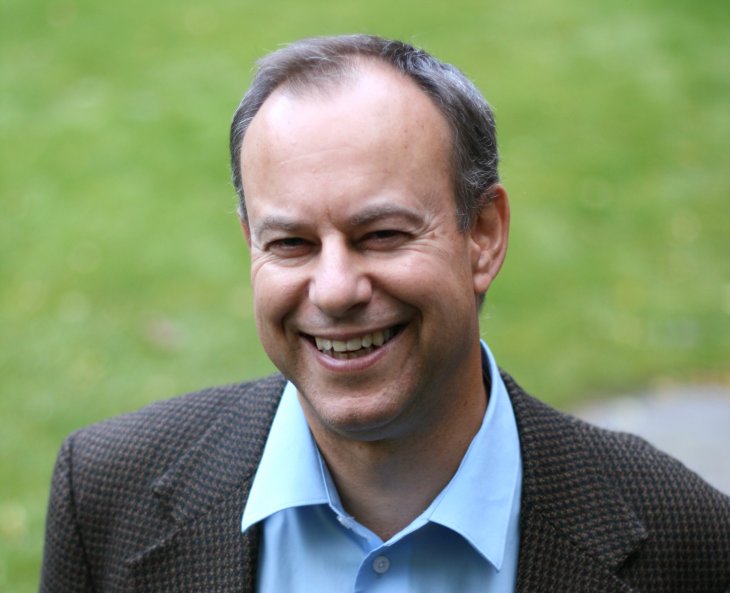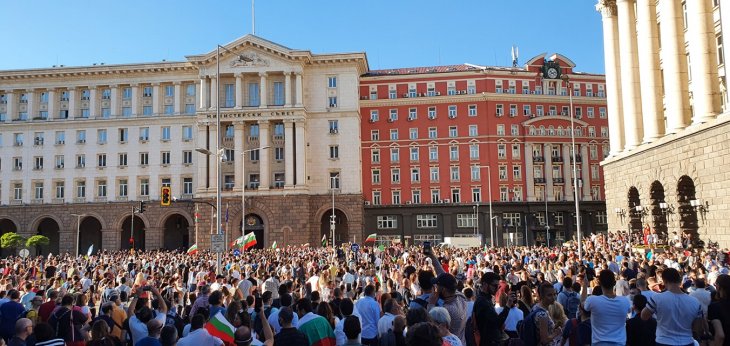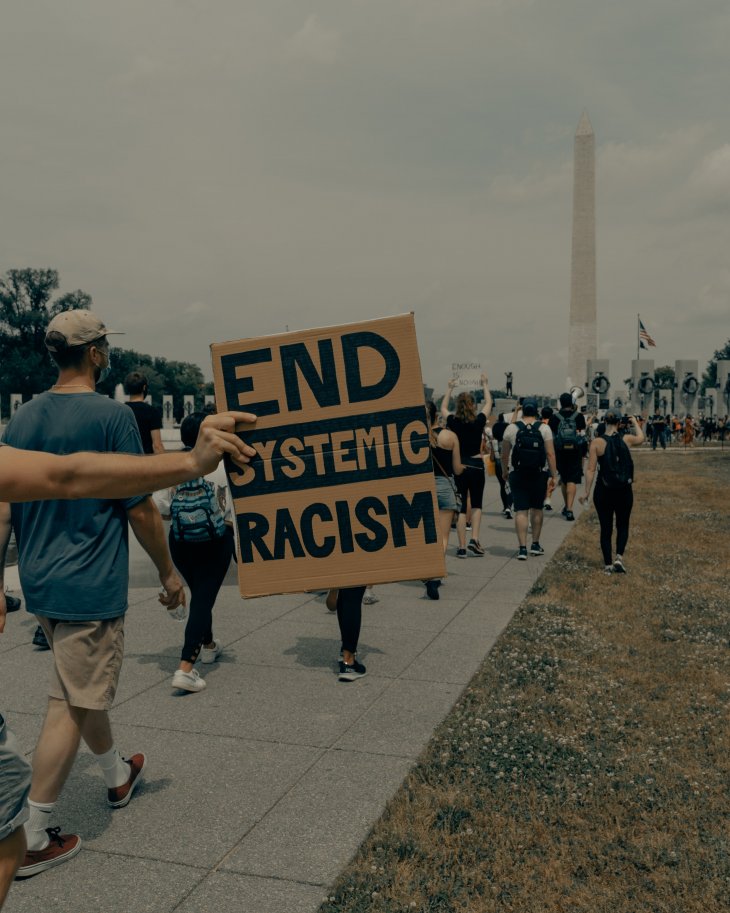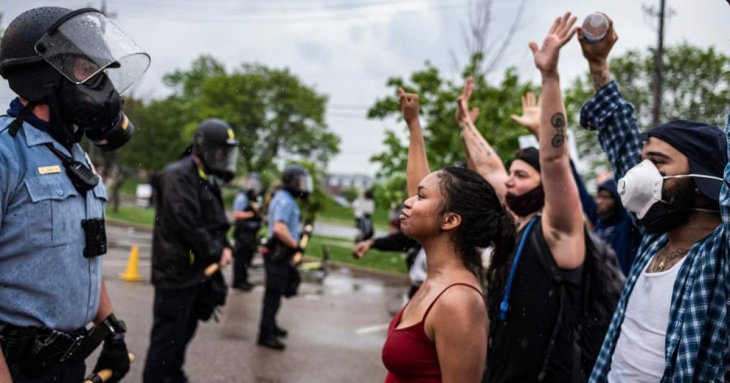Resistance to the 1 February, 2021 military coup in Myanmar is symbolised by a recent video: Images of young protesters killed by Myanmar’s Security Forces are accompanied by lyrics: “We are ghosts. We are already dead. If we die again today, in this life and the next, we will haunt you forever.” The video marks how dramatically the situation in Myanmar has evolved. Moving away from peaceful mass protest, Myanmar is on a trajectory to prolonged civil conflict. Both the living and the dead will continue to fill the streets.
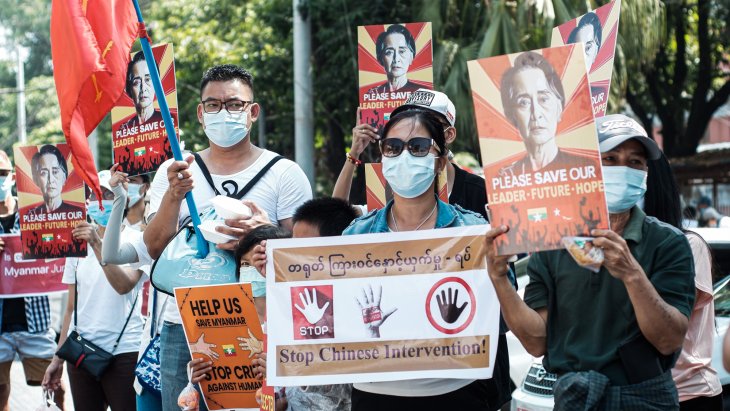
Protest in Myanmar against the military coup on 14 February 2021. MgHla (aka) Htin Linn Aye via Wikimedia Commons
